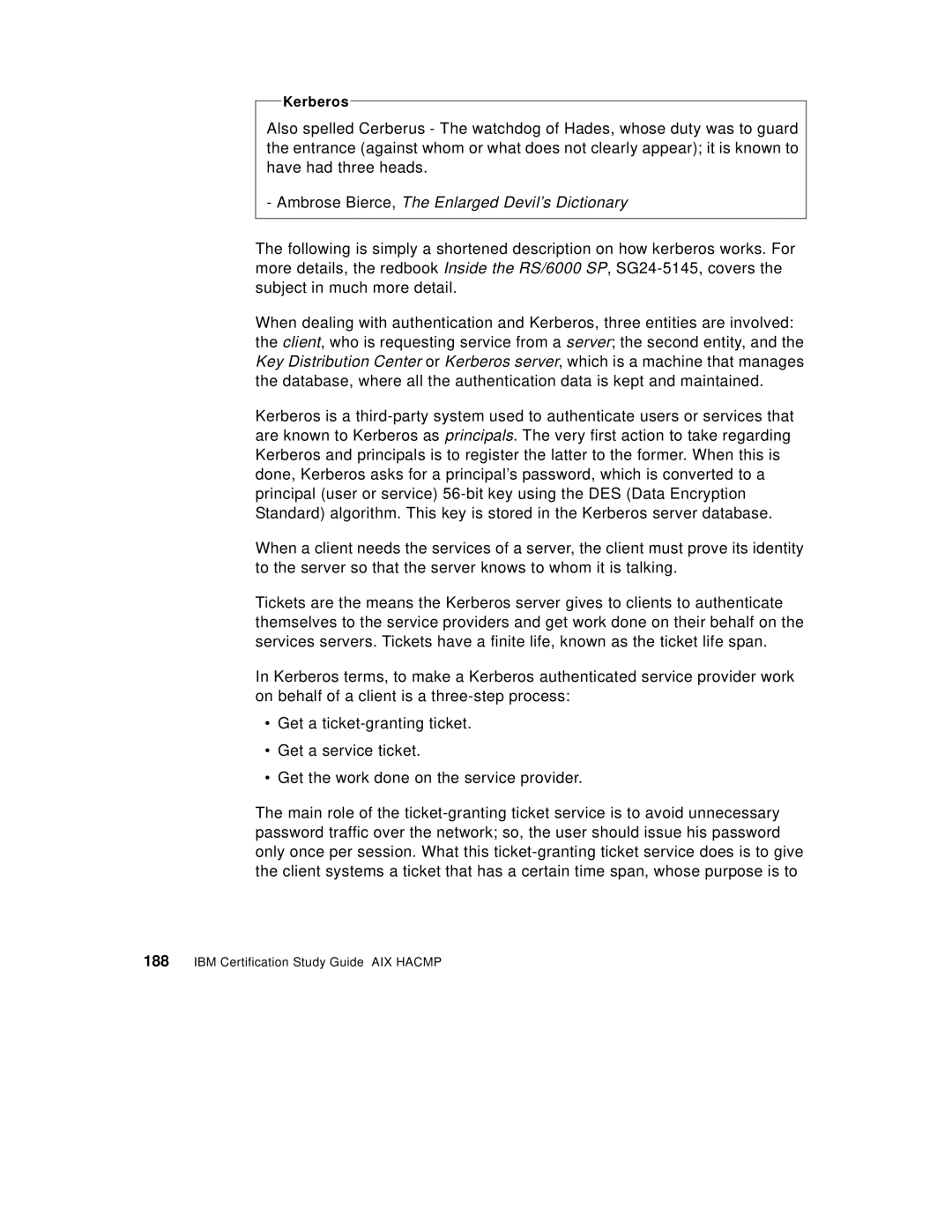
Kerberos
Also spelled Cerberus - The watchdog of Hades, whose duty was to guard the entrance (against whom or what does not clearly appear); it is known to have had three heads.
-Ambrose Bierce, The Enlarged Devil’s Dictionary
The following is simply a shortened description on how kerberos works. For more details, the redbook Inside the RS/6000 SP,
When dealing with authentication and Kerberos, three entities are involved: the client, who is requesting service from a server; the second entity, and the Key Distribution Center or Kerberos server, which is a machine that manages the database, where all the authentication data is kept and maintained.
Kerberos is a
When a client needs the services of a server, the client must prove its identity to the server so that the server knows to whom it is talking.
Tickets are the means the Kerberos server gives to clients to authenticate themselves to the service providers and get work done on their behalf on the services servers. Tickets have a finite life, known as the ticket life span.
In Kerberos terms, to make a Kerberos authenticated service provider work on behalf of a client is a
•Get a
•Get a service ticket.
•Get the work done on the service provider.
The main role of the
